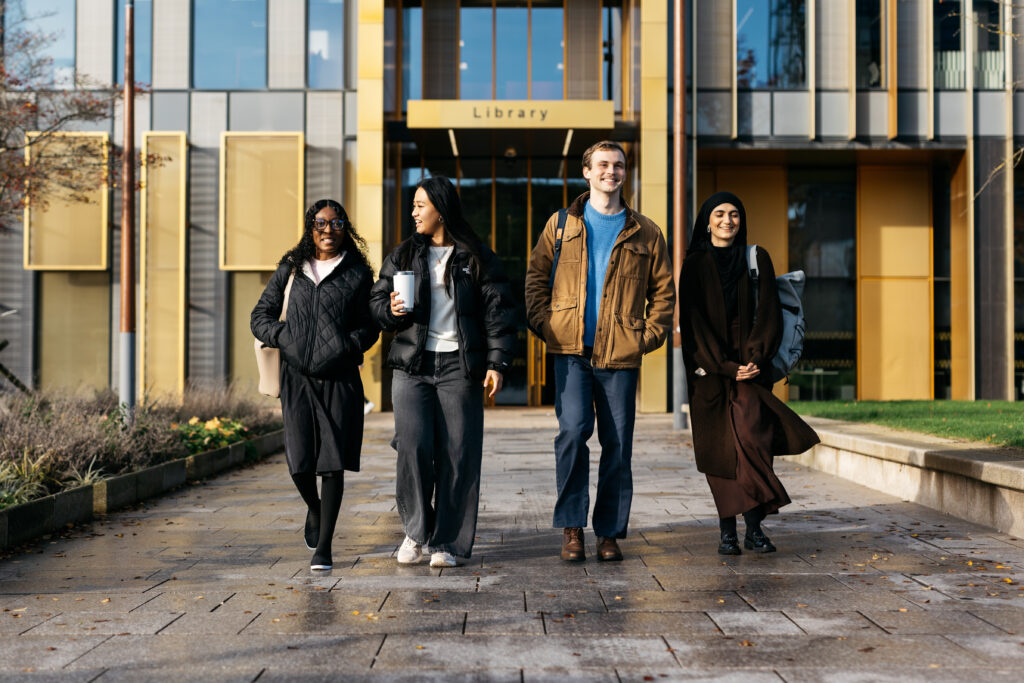Established in 1896, the School of Education at the University of Birmingham is today one of the UK’s leading research-led institutions, consistently ranked in the top 100 in the world and in the top 15 in the UK.
Here, over 100 academic staff guide and inspire more than 2,500 students in the various departments and research centers.
“I chose to study at the University of Birmingham because of its renowned education, research and world-class facilities,” says BA (Hons) Educational Psychology student Cheuk Ho. “When deciding which university to attend, I prioritized factors such as my learning experience, academic excellence and the potential career support available; the University of Birmingham checked all the boxes.
Such career readiness is characteristic of graduates of the school’s various programs. Grounded in research, theory and practice, these programs ensure that students develop the skills they need to prepare for a global career in education. Work placements, internships and funded study abroad opportunities further increase their competence and confidence to work in multiple countries. for example. past students have traveled to Chile to teach at an international school on a fully funded Turing grant.

The School of Education is consistently ranked in the top 100 in the world and in the top 15 in the UK. Source: University of Birmingham
Experiential and engaging undergraduate and graduate programs
At undergraduate level, the school offers BA (Hons) Psychology in Education, BA (Hons) Education and Sociology and BA (Hons) Education – the latter being the core program that encapsulates education as a whole in terms of human, cultural, economic and social development.
This three-year program is designed for students who aspire to work in education, teaching children and young people in a variety of fields. In the second year you are required to attend a compulsory professional placement in the UK or abroad. This compulsory course will provide valuable practical experience that you will need when you enter the professional field.
You can volunteer as a teaching assistant in schools, observe an education professional, work on an educational research project; lead educational activities or lend a helping hand at an outdoor education center. There are so many ways to complete your internship – all of which give you the vital experiential learning you need.
At postgraduate level, the school offers a variety of Master’s programs for those looking to advance or change careers. One of these is Master’s Education, where you will not only develop your skills as an educator, but also offer solutions to real-world educational problems to improve the industry.
“The MA program offers a diverse choice of modules and the content covered consolidates my knowledge and understanding of theories as well as the latest educational issues and debates,” says MA student Wai Ho. “I’m also glad to have all kinds of academic, career and welfare support during the course.”
If you are inclined to teach in language education, the MSc TESOL (Teaching English to Speakers of Other Languages) is perfect for you. This program links language teaching with wider educational principles – two elements essential to confident classroom leadership. Spanning three semesters over 12 months, most courses take place in practice, where you’ll be supported by tutors who bring the latest developments in language learning directly into your curriculum.
“Having an experienced and motivating faculty with master’s skills and experience in TESOL has benefited my academic studies,” says Hailin Zhang, master’s student in TESOL. “As a Chinese student, I have made an effort to take advantage of opportunities to interact with a diverse community of students and teachers to enhance my overall educational experience and gain a global perspective on language teaching and learning.”
For those who want to make a difference to the lives of children, young people and adults with learning disabilities, the school-based MSc Inclusion is a universal choice. There are five pathways designed to develop your understanding of specific inclusive practice: children with autism, adults with autism, special educational needs, severe learning disabilities/profound and multiple learning disabilities and social, emotional and behavioral difficulties.

The city of Birmingham is a welcoming and diverse home away from home for international students. Source: University of Birmingham
The new and improved MA in Educational Leadership and Management will enhance your ability to lead improvements and bring about change in educational environments by using research and evidence that develops and challenges current school practices. You will have the opportunity to engage with leading academics and local school teachers as they share their expertise and knowledge. You will also be part of a community committed to reviewing and improving school practices.
A multicultural, welcoming and supportive city and campus
The university is located in Birmingham, the second largest city in the United Kingdom. Known for its vibrant mix of cultures, the city celebrates diversity and creativity with thriving international communities that come together to share their way of life.
International students will immediately feel at home here. Various events like Lunar New Year, Diwali and Bairam celebrations are held throughout the year in the diverse neighborhoods of the city. As the city is strategically linked to key attractions, getting around is easy by bus or train, in addition to Birmingham Airport located just a few kilometers from the university.
“As a Vietnamese, I’m excited to be in Birmingham, which has the largest Vietnamese community in the UK, and I love learning about different cultures through food, especially India, as Birmingham is known for having the best Indian food in the UK,” Says Trong Nguyen, a Master of Education (Leadership) graduate. “I travel everywhere by bus or train and save a lot on commuting costs, and I live right next to campus in a neighborhood with great specialty supermarkets.”
The campus and its community are equally welcoming to international students. From language support to visa advice, there is a range of services tailored to their needs. The Academic Skills Centre, Birmingham International Academy, Personal Academic Tutor and many other student services provide academic support. Various clubs, societies and events keep the campus social calendar full of events celebrating cultures from around the world.
With so much to do and people to meet, it’s easy to see why many find it difficult to leave as a graduate. But thanks to the university’s global alumni network, they will always be connected to their friends and reminded of the great times they had as students at the University of Birmingham.
Follow the University of Birmingham on Facebook, Instagram, LinkedIn, WeChat, Weibo, Xand YouTube.
